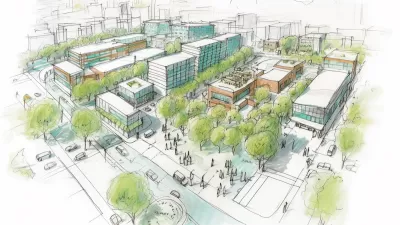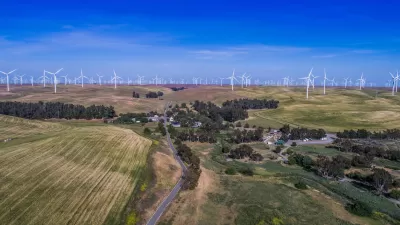Jane Lumumba issues a warning about the self-contained cities being comprehensively planned and built from scratch across the continent. Will they benefit international investors and government leaders to the detriment of local residents?
Lumumba, a Nairobi-based urban practitioner, examines the 'New City' projects being planned for the periphery of several older African cities, which are being designed as "relatively self-contained communities" that will "meet their own residential, commercial, industrial and retail needs."
"Nairobi will soon welcome Konza, already being hailed as Africa’s Silicon Valley, and Tatu City, a $2.8 billion USD project located just off the region’s new Thika Super-Highway. Just outside of Accra, Appolonia, nicknamed the “City of Light,” is a planned, mixed-use city that broke ground last year and is conceptualized as a 'work-live-play' community. Lagos is eyeing the construction of Eko Atlantic, a city for 400,000 built on land reclaimed from the ocean. And Lusaka, Zambia is welcoming Roma Park, a residential and commercial development being built on 118 hectares of greenfield."
"What is worrying is that there is little recognition of place, economy, context and even poverty in these cities," observes Lumumba. "This begs several questions. To whom do these cities belong? Who is planning them? Are they inclusive cities, or simply profit-driven businesses?"
The story of Angola's Nova Cidade de Kilamba, a new city built by a state-owned Chinese investment company that largely sits empty, is a cautionary tale.
FULL STORY: Why Africa Should Be Wary of Its ‘New Cities’

Planetizen Federal Action Tracker
A weekly monitor of how Trump’s orders and actions are impacting planners and planning in America.

Map: Where Senate Republicans Want to Sell Your Public Lands
For public land advocates, the Senate Republicans’ proposal to sell millions of acres of public land in the West is “the biggest fight of their careers.”

Restaurant Patios Were a Pandemic Win — Why Were They so Hard to Keep?
Social distancing requirements and changes in travel patterns prompted cities to pilot new uses for street and sidewalk space. Then it got complicated.

Platform Pilsner: Vancouver Transit Agency Releases... a Beer?
TransLink will receive a portion of every sale of the four-pack.

Toronto Weighs Cheaper Transit, Parking Hikes for Major Events
Special event rates would take effect during large festivals, sports games and concerts to ‘discourage driving, manage congestion and free up space for transit.”

Berlin to Consider Car-Free Zone Larger Than Manhattan
The area bound by the 22-mile Ringbahn would still allow 12 uses of a private automobile per year per person, and several other exemptions.
Urban Design for Planners 1: Software Tools
This six-course series explores essential urban design concepts using open source software and equips planners with the tools they need to participate fully in the urban design process.
Planning for Universal Design
Learn the tools for implementing Universal Design in planning regulations.
Heyer Gruel & Associates PA
JM Goldson LLC
Custer County Colorado
City of Camden Redevelopment Agency
City of Astoria
Transportation Research & Education Center (TREC) at Portland State University
Camden Redevelopment Agency
City of Claremont
Municipality of Princeton (NJ)





























